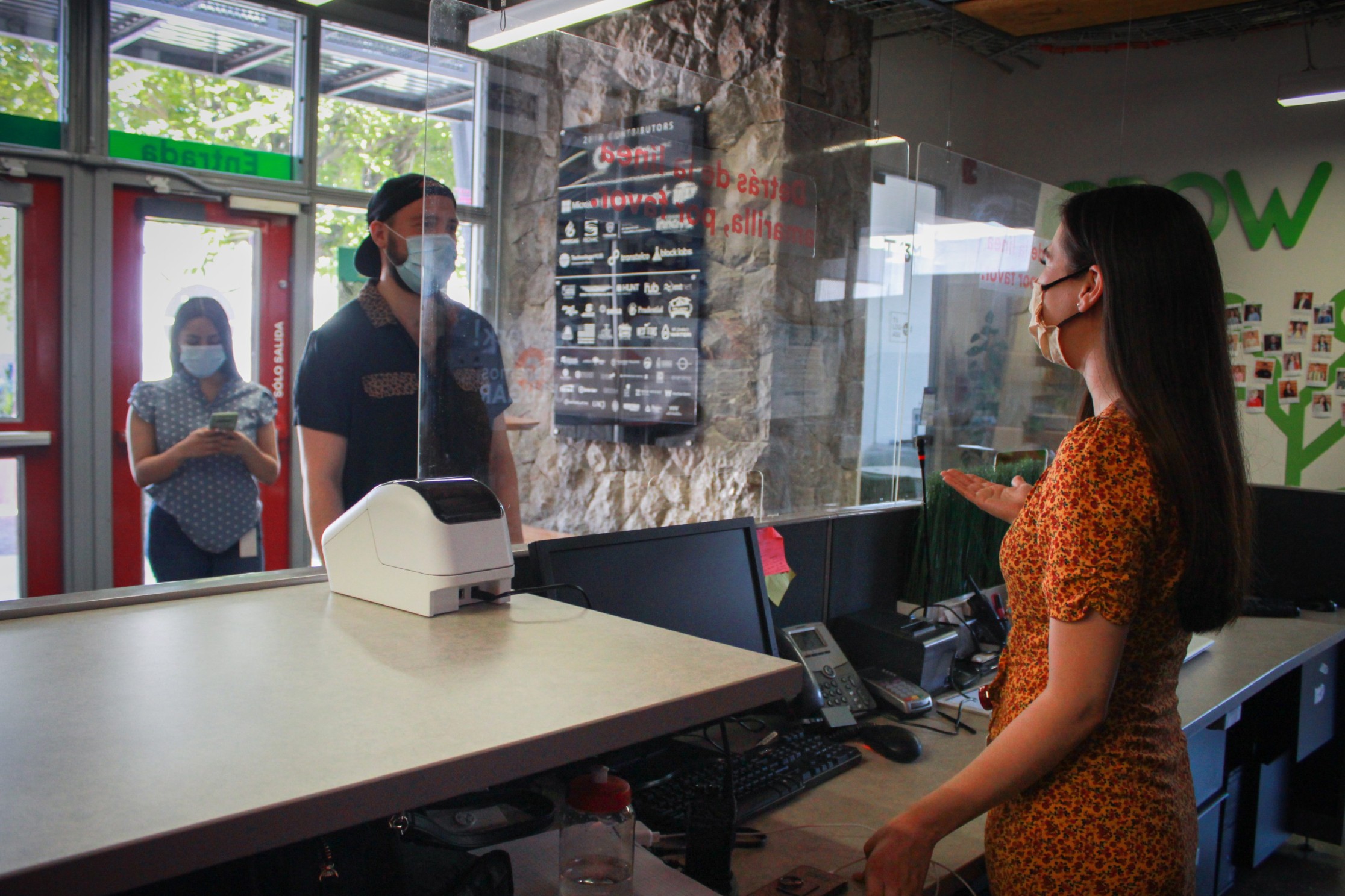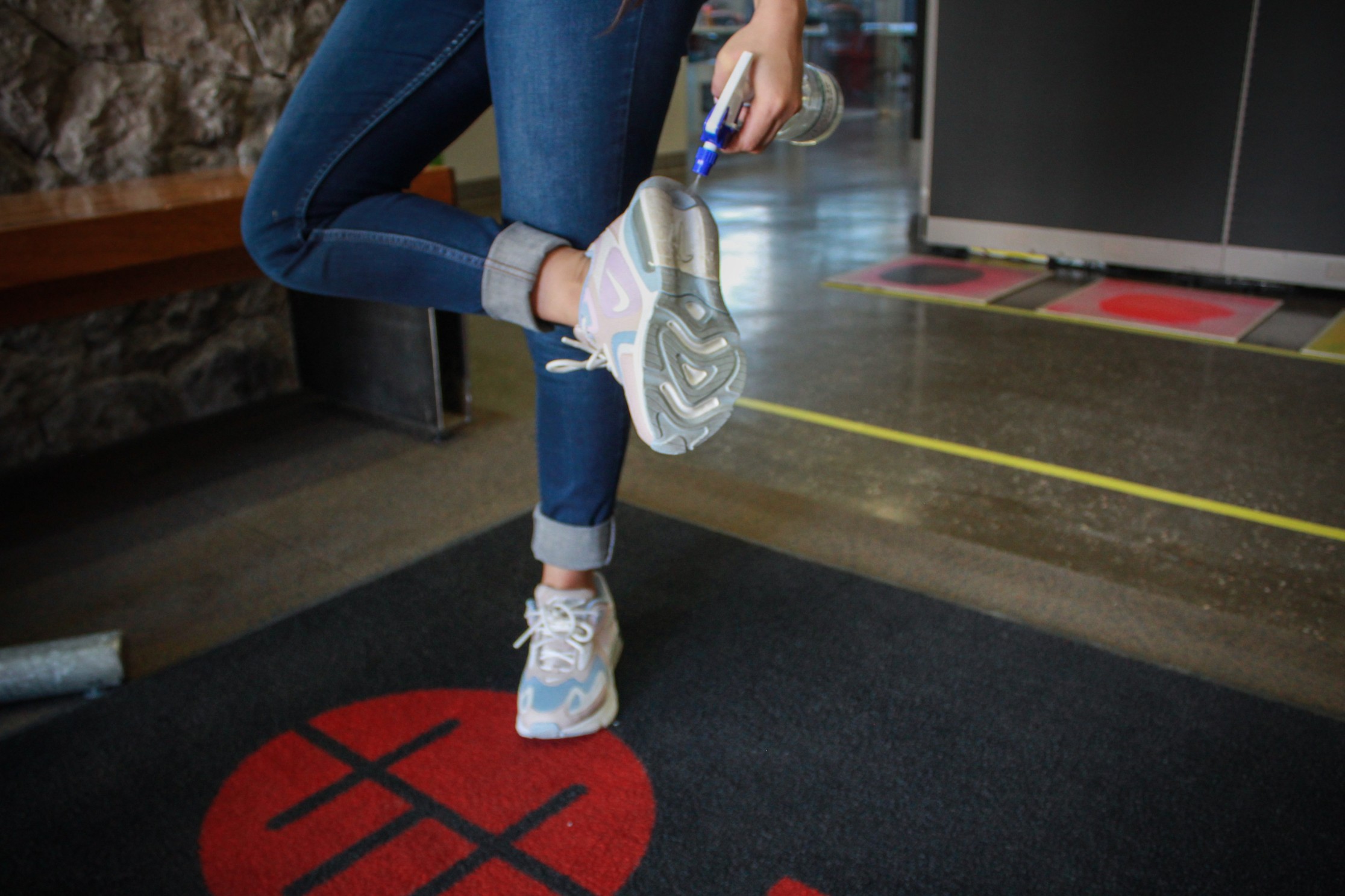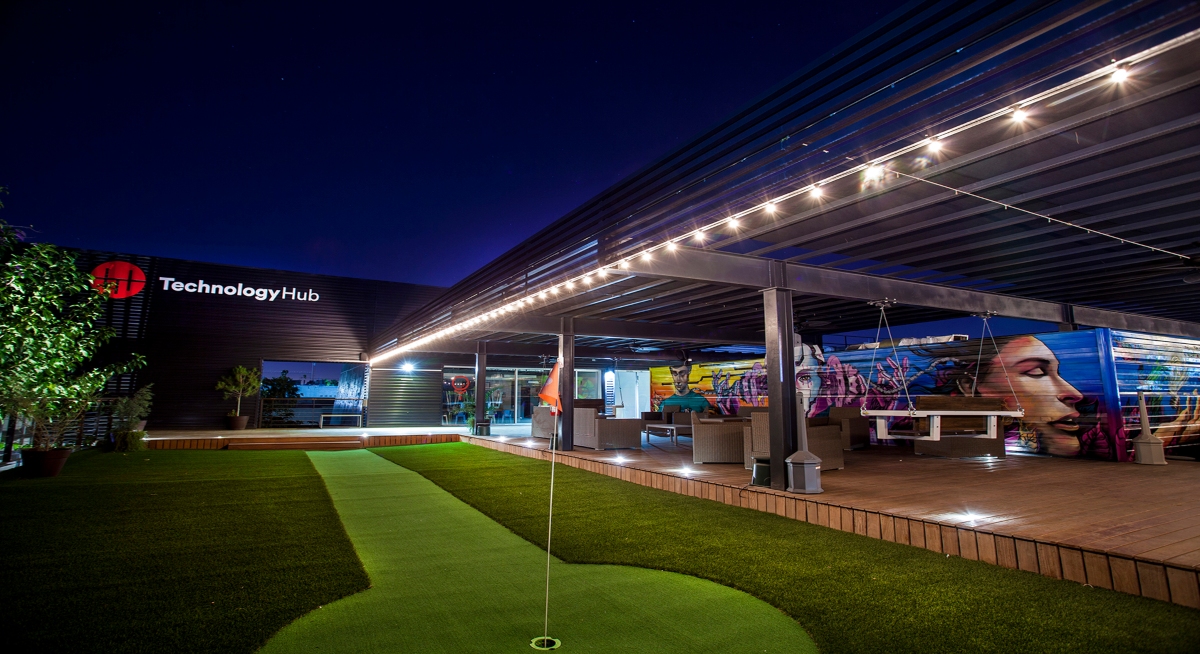If a work from home policy was ever an optional company perk, during lockdown, the reality of shifting to full-time remote work suddenly doesn’t seem so attractive anymore.
Learning how to juggle a new work–life balance, setting up makeshift office spaces in our homes, struggling through poor internet connections during Zoom meetings and perhaps even balancing all of this with homeschooling -- these months in lockdown seem to have lasted a lifetime.
While Technology Hub’s essential workers have continued to work on campus throughout the lockdown period, following strict guidelines to prevent the transmission of COVID-19, it’s now time to open the Hub back up to the rest of the community.
On June 1, after almost three months of lockdown, Technology Hub began implementing measures for members of the business incubator to return, at a reduced capacity of 50 percent. Co-existing with COVID-19 is now a new reality for the Tech Hub, our HR department has developed and implemented key guidelines for tenants keen to return to the campus.
While new policies might take some getting used to, working with them is our best route to returning to a routine that resembles something of what doing business was like pre-COVID. We have taken a fast, forward-thinking approach to give Technology Hub members and tenants peace of mind and what they need to make the transition back.
Tech Hub health and safety protocol
First and foremost, Tech Hub tenants are required to wear a facemask at all times. One mask per person will be provided.
 Photo by: HUBmedia
Photo by: HUBmedia
Much like entering other public places post-lockdown, community members are required to disinfect their hands and shoes upon entering the premises. As well as this, their temperatures are taken to ensure no member shows symptoms of COVID-19.
Entry points for both tenants and visitors are restricted to the front gates at the north entrance. Delivery personnel will leave parcels with concierges and will not be allowed onto the campus.
Perhaps the most significant change to working conditions will be the halving of member capacity in communal areas. These areas include our meeting rooms, offices, common rooms and auditoriums.
When it comes to the kitchen, the heart of the Hub, each tenant is required to provide their own cutlery, plates and mugs or glasses to drink from. Food stored in the refrigerator is only permitted in tupperware, kept until the end of each working day. If employees use the microwave, they must disinfect their personal workspace afterward.
Workspaces are disinfected daily and desks provided with acrylic protectors. Sanitization stations are also being set up to provide personnel with antibacterial hand gel and hand wipes.
 Photo by: HUBmedia
Photo by: HUBmedia
Personal hygiene standards will be closely monitored, with excessive jewelry and ties prohibited. Facial hair is also expected to be kept neatly groomed.
Members of the Hub will also be required to maintain a safe 1.5-meter distance from their colleagues, greetings that involve physical contact are not recommended and any person showing COVID-19 symptoms will be sent home to isolate for a period of 15 days.
Drawing upon our own Fab Lab resources Technology Hub has designed and 3D printed over 2,600 free face masks for frontline health workers who are protecting the local population during this pandemic. We are likewise producing masks for our own co-work community.
What do the health experts say?
The Centers for Disease Control and Prevention (CDC) recommend that business workplaces, like Technology Hub, ventilate their workspace, offer health checks for employees, disinfect surfaces, encourage personal hygiene, implement social distancing measures and stagger shifts to reduce the overall number of people present at any one time.
The public health institute published information detailing how COVID-19 spreads in an office context, based on a case study from a South Korea call center, where an outbreak affected a building which houses both offices and apartments.
Of the 1,143 employees, residents and visitors tested for the virus, 97 results came back positive. A floor plan published as part of the study shows that almost all of those who tested positive for COVID-19 were located on one side of the office, working at desks located within close proximity of each other.
Further spread of the disease was prevented by the call center’s rapid decision to impose obligatory testing, contact tracing and quarantine measures.
Technology Hub is perpetually adapting and enhancing in office COVID-19 coexistence policies in line with the release and evolution of new research studies and findings.
What are other incubators doing?
As leaders of Boston-based incubators CIC, The Engine and Lab Central discussed in a webinar at the beginning of May, no one office building has the perfect solution or correct answer on how to return to the workplace while the COVID-19 threat is still present.
As the global pandemic has taught us, understanding how to coexist alongside it is something that everyone is still learning how to do. Even the World Health Organization (WHO) has, at times, got it wrong.
Leading co-work spaces, like Technology Hub, are prioritizing personal space and single occupancy work nooks, as well as increasing the circulation of fresh air within the office.
Other incubators, such as CIC Boston, are experimenting with the idea of removing all common touch surfaces and offering their members on-demand testing for COVID-19.
What is perhaps most important to bear in mind is how businesses and incubators can learn from each other.
In order to support the local ecosystem and tech community, Tech Hub’s HR department is helping local business stakeholders by providing advice and sharing insights, wherever possible.
One of the advantages of being part of a community like Tech Hub is that we have developed an evolving, coordinated workplace strategy to co-exist with Covid-19. We are doing the research and perpetually updating our guidelines to take the pressure and uncertainty off of our entrepreneurs and tenant businesses, so they can get back to work and focus on what they do best.
A “new normal”
It is still difficult to imagine exactly what our working lives will look like in the future, but for now, establishing a balance between remote work and restricted office work might be our best option.
It is a positive development that makes incubators like Tech Hub, that much more valuable to entrepreneurial communities. Many of the conversations we are having with companies indicate a move away having staff operate out of singular traditional independent offices. Many are instead opting for flexible work and home arrangements that utilize reduced capacity spaces in co-work offices. The approach allows employees to work safely and minimize risk, while maintaining the human interaction that is key for creativity, productivity and employees mental health.
Although this change may compromise many social aspects of company culture for the time being, it’s a small and manageable detail for businesses working to reposition themselves in a market that has changed dramatically from a few months ago.

